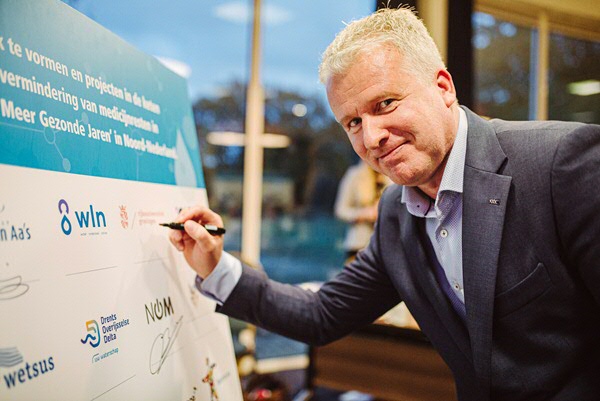UG researchers join European call for sustainable drug discovery
After signing a consortium agreement on reducing medicine waste in water in 2019, Professor Eelko Hak and Professor Gerrit Poelarends from the University of Groningen (UG) have now joined a European pharmacy research collaboration to point to the global increase in the use of medicines and its long-term impact on the ecosystem and our health. They propose ten principles of sustainability to be applied in drug discovery. Sustainability should play an important role in the approval of new drugs, and universities should integrate sustainability into their (drug discovery) educational programs, they say.
Due to the expanding and ageing world population, the importance and use of medicines is expected to increase. This will lead to a greater impact on the ecosystem and our health in the long term.
The concept of sustainability is slowly gaining traction and is currently still fragmented in the pharmaceutical field. The researchers therefore advocate a global, systematic approach and place the emphasis on sustainability already in early stages of drug development, i.e. drug discovery.
Read the official press release
Read the article in the journal 'Medicine in Drug Discovery'

More news
-
10 February 2026
Why only a small number of planets are suitable for life
-
09 February 2026
Can we make the earth spin in the opposite direction?
